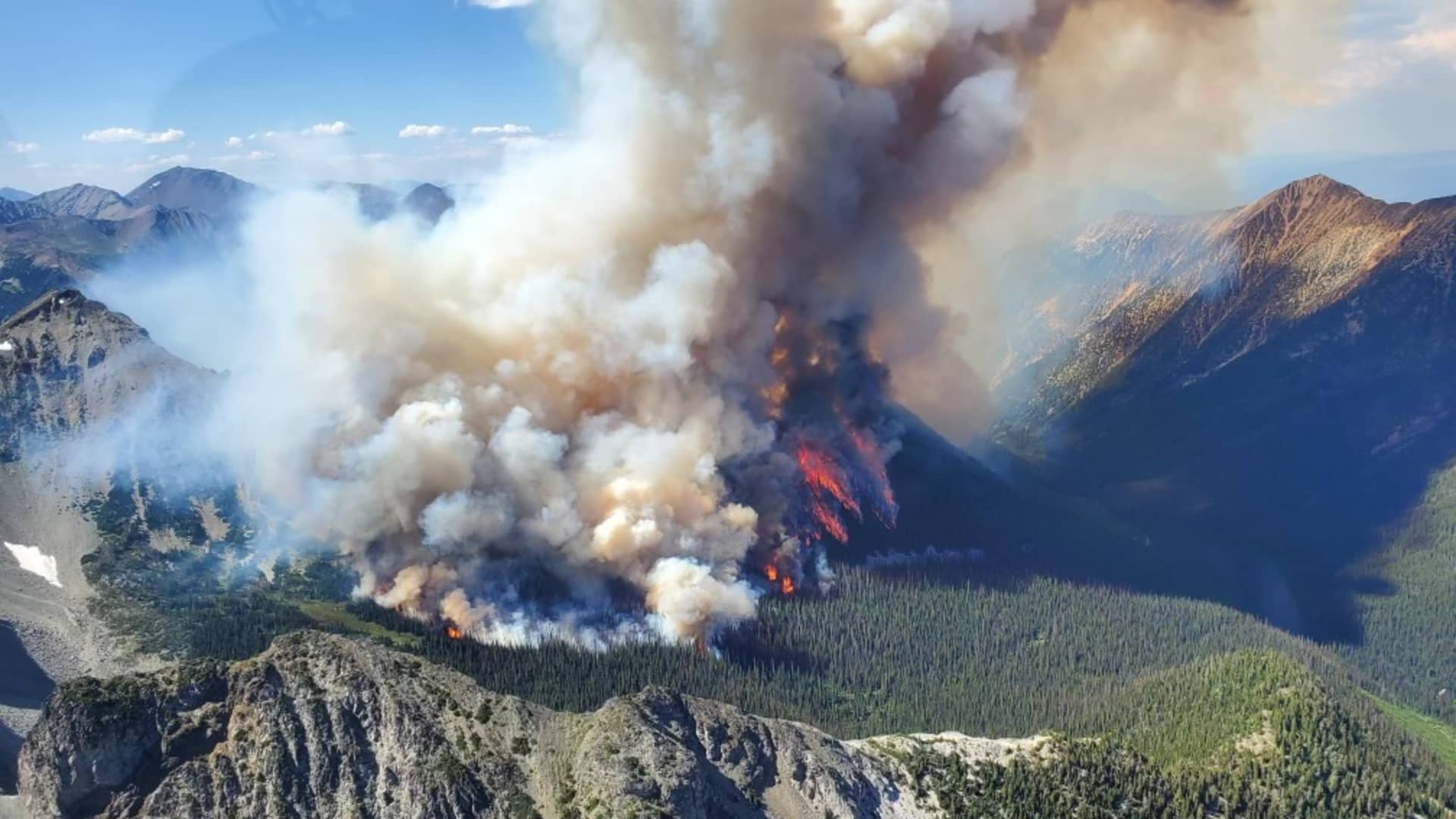An extraordinary blend of scorching temperatures, an unprecedented fire season, and hazardous smoke plumes is currently wreaking havoc in Canada this summer. Kristina Dahl, principal climate scientist at the Union of Concerned Scientists, describes the situation as terrifying, emphasizing the urgent need to address climate change and its consequences. The continued burning of fossil fuels means that even if we were to stop producing greenhouse gases today, the planet would continue to warm for several decades. Michael Flannigan, the research chair for predictive services, emergency management, and fire science, explains that this combination of extreme heat, fires, and smoke is a new reality that signifies the profound changes occurring on our planet.
The record-breaking wildfires in Canada are far from over, with the total area burned surpassing previous records and still increasing. It is unusual to see fires occurring throughout the entire country simultaneously. The fire season is expected to persist, with many fires projected to burn throughout the summer, fall, winter, and reemerge in the spring. This relentless burning poses a significant challenge for firefighters. Vegetation, turned into kindling by the record heat, exacerbates the situation. The heat domes occurring in North America, trapping hot air for weeks at a time, have been linked to the development and spread of these fires.
Climate change affects the factors necessary for wildfires to thrive, including fuel, ignition, and weather. The increased prevalence of wildfires is a consequence of climate change and land management practices. While fire management efforts can be effective in some cases, they cannot prevent all fires. Once a fire reaches a certain intensity, it becomes virtually impossible to control. This means that people will need to adapt and learn to coexist with wildfires. The consequences of these fires extend beyond Canada, as smoke from the wildfires travels to other parts of the world.
Addressing this issue requires a global effort to reduce greenhouse gas emissions and mitigate the effects of climate change. Although technological advancements like drones and artificial intelligence can aid in monitoring and tracking fires, they are not ultimate solutions. The key lies in transitioning away from fossil fuels and taking decisive action to combat climate change. Michael Flannigan remains hopeful that society can rise to the challenge and make the necessary changes before it’s too late.
Denial of responsibility! VigourTimes is an automatic aggregator of Global media. In each content, the hyperlink to the primary source is specified. All trademarks belong to their rightful owners, and all materials to their authors. For any complaint, please reach us at – [email protected]. We will take necessary action within 24 hours.


